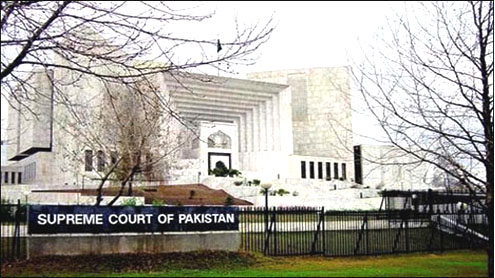
LAHORE: Though a multi-million scam in the Live Stock and Dairy Development department’s milk processing plants in Punjab is over with either exoneration or reinstatement of those allegedly ‘involved’ but interestingly a grade-19 officer who is not even a regular director has been working as Director General, Media has learnt.
At present both of the seats of the DGs are lying vacant. Though there is only one officer in grade-20 who is still waiting posting in spite of the fact that he along with all other suspects of misappropriation have been exonerated from the financial embezzlement.Due to non posting of regular DGs in both of the Directorates General (Ext & Research) the vision of the Chief Minister Mian Shahbaz Sharif to promote live stock and dairy development is being damaged. Former DG Dr Irfan Zahid (promoted to the rank of DG on regular basis) had been performing his duties as director general (extension/BS-20) since January 2009, the documents show. Moreover, he is the only regular officer in BPS-20, the sources disclosed.
The ex-DG and other directors and district livestock officers (DLOs) were arrested and suspended from the top position over the charges of corruption and misappropriation of funds, but nothing could be proved against them in the court of law. So the Punjab government had to reinstate all the officers, including DG Dr Zahid. On the other hand, Dr Nawaz Saeed, a grade-19 officer and the then chief research officer, Pattoki, was given additional charge of the top slot of the department on July 9, 2012, as Dr Zahid was put behind bars.
“As per the Punjab government’s rules of business, no junior can be posted against a higher slot in the presence of a senior officer,” said an S&GAD official who deals with service regulations. He said it would be an irony to give additional charge to a director when a DG had been duly reinstated by the competent authority on his seat.Sources in the Livestock and Dairy Development Department disclosed that the innocent officers would not be posted against their own seats. When asked how a grade-20 officer could be posted against a grade-19 slot, an officer replied, “It will be done on political pressure.” He confirmed that there was not a single officer who qualified for the post of DG in the department.
L&DD Additional Secretary Khurshid Zaidi, with additional charge of the secretary, was not available for comments upon the latest development.As the Punjab ombudsman also took notice a couple of weeks back on a complaint and sought a report from the chief secretary over the posting of junior officers against senior slots, the government would avoid repeating such gaffe, said an officer on the condition of anonymity.It is worth mentioning here that an inquiry committee constituted to look into the scam did not fix responsibility for misappropriation of Rs 74 million as the officers involved in the case were only found negligent.
The question who actually embezzled the amount still remains unanswered as the case is still pending in the anti-corruption court.The project costing Rs 1.152 billion took off in 2006-7 in the districts of Layyah, DG Khan, Jhang, Muzaffargarh and four districts in the central Punjab with its headquarters in Sialkot. The documents show the project was executed by a steering committee headed by P&D chairman and comprising secretary finance, secretary P&D, secretary LDD, CEOs of Idara-e-Kisan, Punjab Rural Support Programme, and some senior officials of the Livestock Department.
As per PC-1, planning and evaluation cells of the L&DD Department and P&D Department were assigned the task of monitoring and evaluation. But, none of these cells was ever interrogated in this regard.Besides analysing the statements of the officers, the probe committee also mentioned their responsibilities in the project. On the basis of the available documents, the committee noted that the L&DD secretary had directed the government officials not to get involved in the private enterprise directly. The committee also observed that the district livestock officers (DLOs) were neither responsible for monitoring the project nor were they involved in distribution of funds. So they could not be held responsible for misappropriation. – ThaNation












